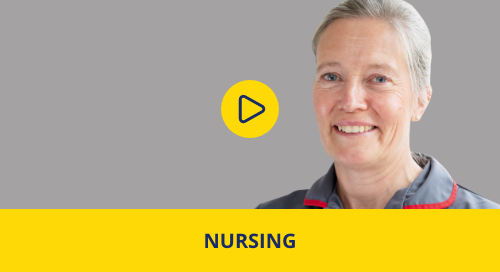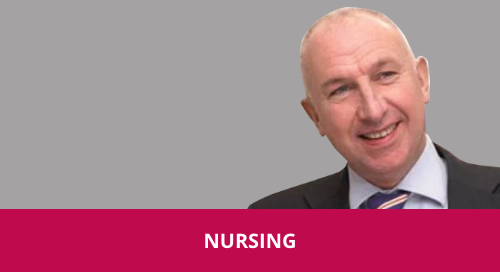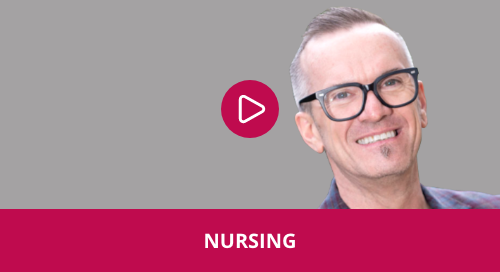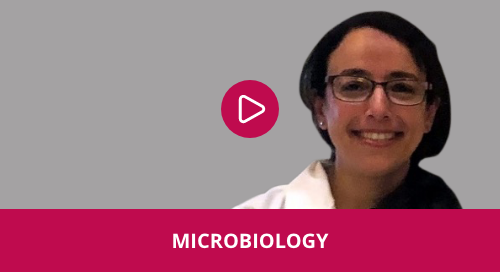helping-hcps-access-trusted-content-they-need
December 04, 2018

Meet Dr. Richards
We would like to introduce you to Dr. Richards, a busy healthcare professional (HCP) who works at least 80 hours a week1,2,3 as a neurosurgeon. During a typical week, Dr. Richards spends his time consulting, performing surgeries, following up patients, managing in office visits, liaising with other medical practitioners and decision makers in his field, talking to sales representatives from pharmaceutical companies, and so on. Despite being severely strapped for time, it is also imperative that he stays up-to-date with the latest research and discoveries in neurosurgery. With access to an abundance of content sources―like pharmaceutical company produced/sponsored content, journal articles, books, and a diverse combination of digital content sources―it is hard for Dr. Richards to determine which source to refer to.
What Dr. Richards really needs is authoritative content in a format he can easily access and digest. Of course, he could run a search on an online search engine, but there is a lot of information to sift through and his time is precious. He could refer to informative pharmaceutical company literature, but he is unsure about how much of an unbiased view this would give him. He could even go online to look up academic research on similar topics but may find that he does not have a subscription to access the content. How then can Dr. Richards access the medical information he needs, in the format of his choice?
The dilemma
Dr. Richards’s predicament is common to many HCPs. HCPs need access to updated and reliable medical information because it helps improve their practice and develop their skills—both of which have a direct impact on the quality of care they can deliver. In today’s digital world, accessing medical information might be perceived as an easy task. The truth is it is not. In fact, HCPs now have access to a lot of information of varying quality from a variety of sources (blogs, journals, books, specialist portals, online Q&A forums, mobile apps, etc.). This makes it hard for them to identify which source would be most suited to their needs.4
A study analyzing physicians’ information-seeking behaviors found that the credibility of the source (followed by relevance, unlimited access, speed, and ease of use) plays a critical role in influencing HCPs’ information-seeking patterns.4 Thus, there is an urgent need to make reliable medical literature easily available to HCPs.
The issues of access, trust, and credibility
As academic publishers and pharmaceutical companies are the biggest producers of medical literature, they can help HCPs resolve the dilemma they face with accessing authoritative content. But there are some challenges associated with the consumption of publisher and pharmaceutical-generated content as well.
Publishers disseminate high-quality peer-reviewed medical literature through journals that HCPs find credible.5 However, not all of these articles are freely available to HCPs globally. Some HCPs (or their institutions) may not have subscriptions to these journals. So even though reliable medical literature is available, it is not always accessible.
As far as pharmaceutical-generated medical content is concerned, reports indicate that while it can be very informative and of high value, the challenge is that HCPs may view it with skepticism, suspecting it of being commercial in nature.6
Matt Winkler, Principal, Multichannel, IMS Health, aptly sums up the current situation: “With the lack of analytical and multichannel sophistication within pharma marketing, most companies have not been able to deliver a personalized customer experience […] This has made it more difficult for the HCP to find the relevant content that is valuable to them at the time they need it.”7
What is the best way for pharmaceutical companies to reach out to HCPs like Dr. Richards and engage them with reliable and essential medical information?
Leveraging the expertise of publishers
This is where the expertise and outreach of academic publishers like Wiley could be used to its fullest potential.8Pharmaceutical companies could partner with publishers to create a customized range of solutions that will cater to the information needs of HCPs. How so?
Publishers could provide reprints of in-demand or highly critical pieces of medical literature that HCPs would normally find difficult to access. Pharmaceutical companies could also tap into publishers’ expertise for content generation and dissemination. For example, publishers could provide HCPs with content in different formats, such as engaging videos, instructive webcasts/podcasts, informative infographics, and educational webinars, workshops, and other training and skill-building resources.
In short, publishers could help pharmaceutical companies understand how and when HCPs seek and access information as well as what content types and formats they prefer. This knowledge could be harnessed to deliver customized content solutions to HCPs by giving them information they can rely on, at the time they want it, on the platform they prefer, and in the format they prefer. For example, publishers may create a specialized microsite for pharmaceutical companies to offer niche, customized content solutions that are based on the content consumption behaviors of their target audience. They could help pharmaceutical companies generate and disseminate localized content to reach HCPs from different geographical regions. Publishers could also provide content feeds that help HCPs directly access their peer-reviewed content without having to search for it. These are just a few examples of the potential avenues a pharmaceutical-publisher partnership could open up and the benefits it could offer to HCPs like Dr. Richards.
Such partnerships could also give pharmaceutical companies an edge over their competitors by positioning them as a source of customized, multi-format, credible, and relevant information.
References
1. University of Iowa Healthcare, Neurological Surgery Residency, Duty hours, https://gme.medicine.uiowa.edu/neurological-surgery-residency/about-program/duty-hours
2. Vanderbilt University Medical Center, Residency education, Policies, https://ww2.mc.vanderbilt.edu/neurosurgery/16650
3. Tamas, Laszlo B., 2016, What is a typical workday like for a neurosurgeon? Quora, https://www.quora.com/What-is-a-typical-workday-like-for-a-neurosurgeon
4. Bennett, Nancy L.; Casebeer, Linda L.; Kristofco, Robert E.; Strasser, Sheryl M., 2004, Physicians’ Internet information-seeking behaviors, J Contin Educ Health Prof, 24(1):31–38
5. Lau, Virginia, 2016, Physicians still rely on medical journals but turn to the web when they have only 10 minutes, MM&M, http://www.mmm-online.com/media-news/physicians-still-rely-on-medical-journals-but-turn-to-the-web-when-they-have-only-10-minutes/article/573623/
6. Stainsby, Beverly, 2013, The trust issue for pharma and HCPs, PMLiVE, http://www.pmlive.com/digital_handbook/online_audiences/online_physician_communities/the_trust_issue_for_pharma_and_hcps
7. 2016, MM&M’s guide to communicating with the connected clinician, https://ghgroup.com/sites/default/files/2016-07/mm_mhcpebook_(1)_60410.pdf
8. Interface (Wiley), Content marketing for a physician audience, http://news.wiley.com/Interface_Infographic
Like this post? Download the PDF today.











